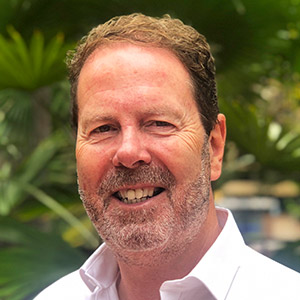 People are the experts in their own lives
People are the experts in their own lives
SAMHC Featured Blogger:
David Kelly
SA Mental Health Commissioner
I was thinking about what I would write in my first blog as Mental Health Commissioner as I walked across the sand towards the ocean. I swim every morning – it gets me moving and sets me up for the day.
Of course it’s different in winter. The water is freezing and the first few strokes take my breath away, but after a couple of minutes the blood begins to flow, the endorphins kick in and I feel completely alive.
Today the sun is out and I know how lucky I am to live in this beautiful part of the world. Starting a new role is always a good time to reflect upon the past and consider opportunities for the future. So I swim south – parallel to the shoreline – and I reflect upon my life and my work and what I have learnt along the way.
Over the past four decades I’ve worked with young people who have been made homeless as a result of family violence and sexual abuse. I’ve worked with families who were excluded from decent housing, education, employment and services because they happened to have the wrong postcode. I have witnessed the impact of trauma and seen its effects echo through families and communities across generations. I’ve worked alongside people who refused to be defined by their illness, disability, or frailty and who have fought against service systems that don’t want to listen and don’t seem to care.
I am not a clinician, but I have learnt about ways to support people to improve their mental health and wellbeing. It always starts with relationships and a willingness to listen and learn. All communities have their own wisdom and people are the experts in their own lives. We will always end up with better services and programs when the people who use them are involved in their design and implementation.
But it’s not always about more services. Often, it’s about a sense of purpose, positive relationships, meaningful goals, access to the right support at the right time. Time and time again, these are the things that people speak of and value.
While each person’s experience is unique, I believe that poor mental health is socially determined and that the burden of mental illness falls most heavily on those from our most disadvantaged communities. These are complex issues that don’t respond to simple solutions – they need to be addressed at both personal and structural levels. The most successful programs adopt ecological change perspectives and balance evidence-based strategies that build upon individual strengths with a focus on systemic change.
I reach the halfway mark of my swim and turn back towards my starting point.
The rhythm of my stroke, of my breathing, is measured and relaxed. This is not a race, it’s a routine that I have practised every day for almost twenty years.
I dry off on the beach, head up to my car and I feel ready to begin my working day.
By David Kelly
SA Mental Health Commissioner
David Kelly is an experienced program manager, service designer and community researcher with a 30-year commitment to working with disadvantaged and vulnerable communities to improve wellbeing and build resilience. He believes that communities change for the better when citizens of all ages are empowered as active and creative participants in community development processes rather than passive consumers of services.
SAMHC Featured Bloggers
The SAMHC presents our series of guest featured bloggers who generously share their personal thoughts and experiences of mental health and wellbeing.



